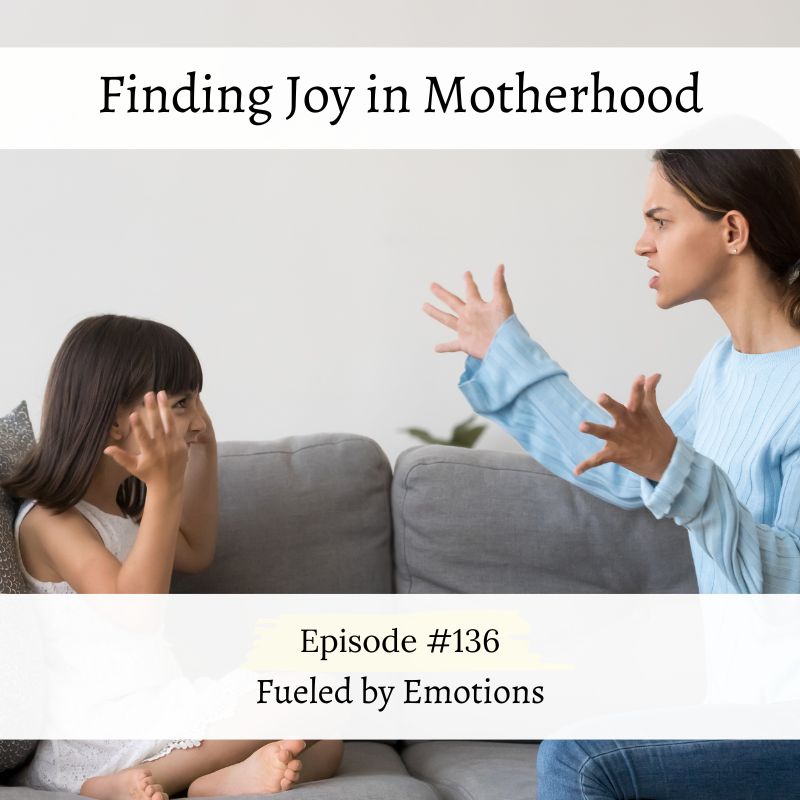Like What You Hear and Want More?
Sign up to join the waitlist for Reimagine Motherhood, my monthly coaching program. I give practical tools and help you make mindset shifts to create the marriage, motherhood, and home you’ve always wanted
Notes for this Episode:
Background
- Today, I want to focus a little more on emotions – how important they are and how unimportant they can be in our life.
Emotional Childhood
- Emotional childhood is a term we apply to grown adults who have not matured past childhood in terms of managing their emotions.
- They react to their emotions and act out, rather than taking full responsibility and choosing thoughts that will create appropriate emotions.
- You blame others for how you feel or how you act and for the results you have in your life.
- You may also punish others with your actions towards them because of how you feel.
- You will know if you are in emotional childhood if your behavior resembles that of a toddler – you yell, scream, or maybe completely shut down and refuse to engage.
Emotional Adulthood
- Emotional adulthood means taking responsibility for our pain, our frustration, and our verwhelm, but also for our joy and happiness. It means not expecting other people to make us happy.
- Emotional adulthood means that if our feelings are hurt by someone or something that was said, it is because of the thought we have about that someone or whatever was said. And from that thought, we created a feeling.
- When we take back our authority or agency over our emotions, we take back power to choose the emotions that help us achieve the life we want and the goals we are working towards.
Emotions are Contagious
- Our emotions are contagious, and we have enormous power and responsibility to regulate them.
- Our husband feeds off our emotions, and our children always know when something is wrong or Mom is mad.
- If you want a peaceful, calm home, it comes from the inside out. You have the power to set the tone, and you do that through emotional adulthood.
Final Thoughts
- Change your relationship with your emotions. It is super easy to feel negative emotions and our brains are wired to be negative, but you have the choice to continue to feel those emotions by thinking all the thoughts that lead to them.
- Make a conscious decision to live with emotional adulthood.
- The more we choose the positive feelings, the happier life will actually be.
- When we get into the habit of looking at our blessings, being grateful for our children, our husband, home, and our life, the negative emotions begin to fall away.

